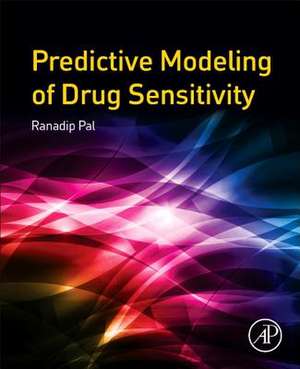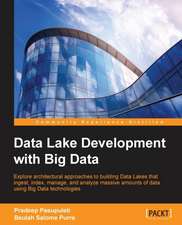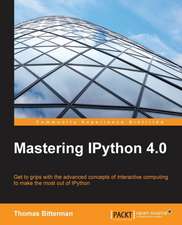Predictive Modeling of Drug Sensitivity
Autor Ranadip Palen Limba Engleză Paperback – 16 noi 2016
This book is an ideal reference for computer scientists, engineers, computational biologists, and mathematicians who want to understand and apply multiple approaches and methods to drug sensitivity modeling. The reader will learn a broad range of mathematical and computational techniques applied to the modeling of drug sensitivity, biological concepts, and measurement techniques crucial to drug sensitivity modeling, how to design a combination of drugs under different constraints, and the applications of drug sensitivity prediction methodologies.
- Applies mathematical and computational approaches to biological problems
- Covers all aspects of drug sensitivity modeling, starting from initial data generation to final experimental validation
- Includes the latest results on drug sensitivity modeling that is based on updated research findings
- Provides information on existing data and software resources for applying the mathematical and computational tools available
Preț: 457.91 lei
Preț vechi: 627.94 lei
-27% Nou
Puncte Express: 687
Preț estimativ în valută:
87.63€ • 91.15$ • 72.35£
87.63€ • 91.15$ • 72.35£
Carte tipărită la comandă
Livrare economică 07-21 aprilie
Preluare comenzi: 021 569.72.76
Specificații
ISBN-13: 9780128052747
ISBN-10: 0128052740
Pagini: 354
Dimensiuni: 191 x 235 x 21 mm
Greutate: 0.75 kg
Editura: ELSEVIER SCIENCE
ISBN-10: 0128052740
Pagini: 354
Dimensiuni: 191 x 235 x 21 mm
Greutate: 0.75 kg
Editura: ELSEVIER SCIENCE
Public țintă
Computer scientists, engineers, computational biologists, and mathematiciansCuprins
1: Introduction2: Data characterization3: Feature selection and extraction from heterogeneous genomic characterizations4: Validation methodologies5: Tumor growth models6: Overview of predictive modeling based on genomic characterizations7: Predictive modeling based on random forests8: Predictive modeling based on multivariate random forests9: Predictive modeling based on functional and genomic characterizations10: Inference of dynamic biological networks based on perturbation data11: Combination therapeutics12: Online resources13: Challenges

























